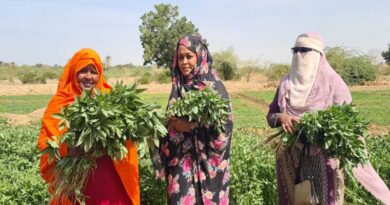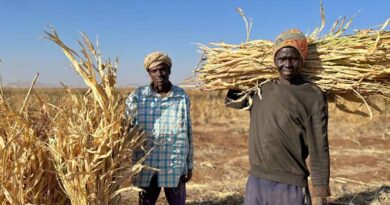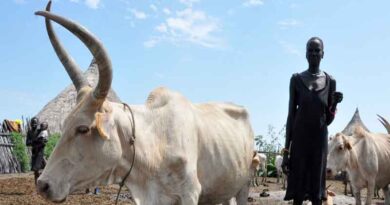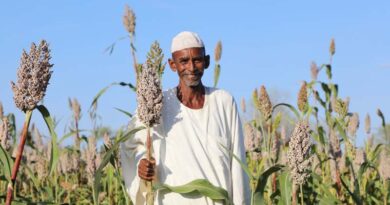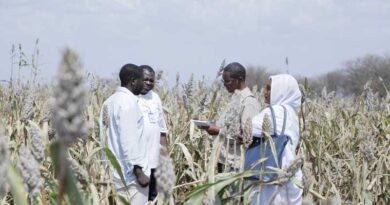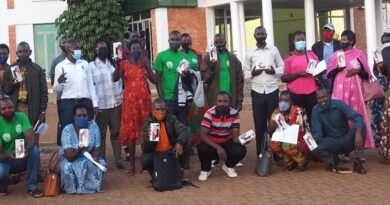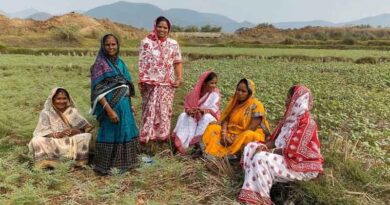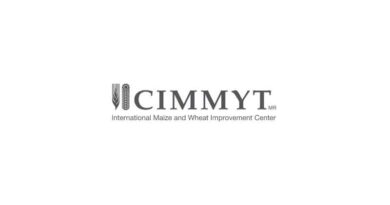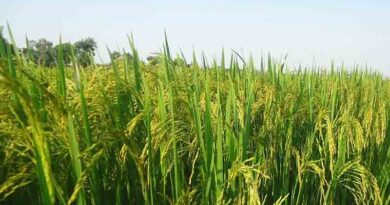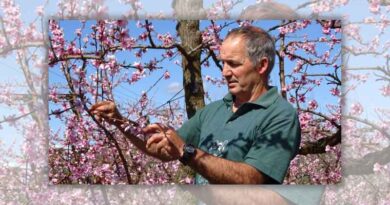How Livestock Vaccination Campaigns Support Breeders in Conflict-ridden Sudan
Working with partners, CIMMYT’s Sustainable Agrifood Systems Approach for Sudan (SASAS) program empowers farmers and herders to reduce the need for humanitarian assistance even in conflict-affected Sudan. SASAS and partners work to ensure animal health and improve the livestock value chain.
28 June 2024, Sudan: Ali Hassan is a 38-year-old herder living in Al Showak, Gadarif, Sudan. Like thousands of traditional animal breeders in Sudan, Ali works hard to take care of his fast-growing flock of animals.
During the past few months, with the ongoing civil war, Ali was a little concerned that he was not getting the veterinary advice that he needed, because of the limited coverage in his area by veterinary services, and that he might lose some of his animals due to the lack of a vaccination service.
Ali was very happy when his neighbor Ahmed told him that Catholic Relief Services (CRS) had trained him as a community animal health worker (CAHW) through the USAID-funded SASAS. Ahmed started to visit Ali to check on his animals and give him valuable advice and tips on how to keep his animals healthy and better fed.
Due to the ongoing armed conflict in Sudan, the local animal health care service has been massively interrupted. CRS, through the USAID-funded SASAS, are currently conducting an animal vaccination campaign in Gadarif in the eastern part of the country.
Catholic Relief Services uses trained community networks to inform herders of the locations where animal vaccinations are taking place and to raise awareness of the importance of having their animals vaccinated.
Trained CAHWs, led by official animal health workers, are driving a massive animal vaccination campaign targeting 150,000 head of goats and sheep in the Gala Alnahal, Al Fao, and Al Showak localities in the traditionally animal-rich Gadarif state.
The well-trained and sufficiently well-equipped CAHWs are driving the campaign showing unflagging dedication and using innovative methods to significantly reduce animal disease, making a remarkable achievement in the ongoing fight against deadly diseases. CAHWs actively promote the dissemination of veterinary education and health care locally, and the improvement of animal health and husbandry through education, veterinary services, enterprise development, and enhanced trade.
“At SASAS, we work to transform the livestock meat value chain to become productive, sustainable, and market oriented. Further, SASAS works with community members in the targeted localities to equitably share natural resources and peacefully engage in mutually beneficial activities”, said Abdelrahman Kheir, SASAS chief of party in Sudan.
The CAHWs were extensively trained and provided with firsthand experience of the basic principles of animal health; animal husbandry and production; basic clinical and husbandry procedures; basic animal disease management; safe food; drug administration; meat inspection at slaughterhouses; common animal diseases; community engagement; and running animal health service activities. In addition, CAHWs check the health of the animals at the slaughterhouses in the various areas targeted by the project.
To ensure gender equity and make sure that no one is excluded, both male and female community members are trained as CAHWs. Fatima is 45 years old and is a local female herder living in Al Fao, Gadarif State; she was looking for a chance to improve her skills in animal breeding and in helping herders within her community. After getting the necessary theoretical and practical training in animal health, Fatima was equipped with a veterinary toolkit and a donkey cart to increase her mobility, while male CAHWs were provided with bicycles to help them travel around and provide veterinary services within their communities.
To enhance the livestock value chain, the CRS are constructing slaughter slabs in the areas targeted by the project in coordination with the local animal health authorities and the community.
Agriculture, including livestock and fishing, is the most important economic sector in Sudan, contributing about a third of the country’s GDP and providing a livelihood for about two-thirds of the active population. The export of livestock has become an increasingly important part of the economy, competing with cash crop sales as the fastest growing, non-oil export sector. Camels, cattle, sheep, and goats are exported mainly to Saudi Arabia, other Gulf States, and Egypt. Around 25 percent of the exported livestock comes from Darfur, after a sharp decline in Darfur’s export capacity due to conflict. Increased export sales have caused an increase in domestic livestock prices in all markets.
(For Latest Agriculture News & Updates, follow Krishak Jagat on Google News)
(+80 Million Farming Audience Visits Krishak Jagat’s Hindi Website – Click Here for Website)



